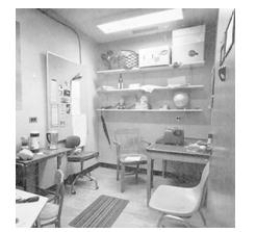Participants waited briefly in a psychology professor's office(pictured below) and were then taken to another room and asked to recall details of the office. The results showed thatmany participants erroneously remembered objects that were not actually present in the office. These memory errors were most likely the result of: 
A) nervousness and apprehension that the participants experienced due to being left alone in the professor's office.
B) the use of schemas, which included items that would be consistent with a typical professor's office
C) imagination inflation as the participants vividly imagined being back in the professor's office during the recall test in the second room.
D) the misinformation effect because the room where the memory test took place had many false retrieval cues present.
Correct Answer:
Verified
Q15: As you are reading this question right
Q16: Q17: Information is stored in short-term memory for Q18: What principle is depicted in the graph? Q19: In a research study on false memories, Q21: According to George Miller, the capacity of Q23: The "phonological loop," "visuospatial sketchpad," and"central executive" Q24: Jamie found the ISBN of the book Q275: Which stage of memory enables us to Q298: British psychologist and memory researcher Alan Baddeley![]()
Unlock this Answer For Free Now!
View this answer and more for free by performing one of the following actions

Scan the QR code to install the App and get 2 free unlocks

Unlock quizzes for free by uploading documents